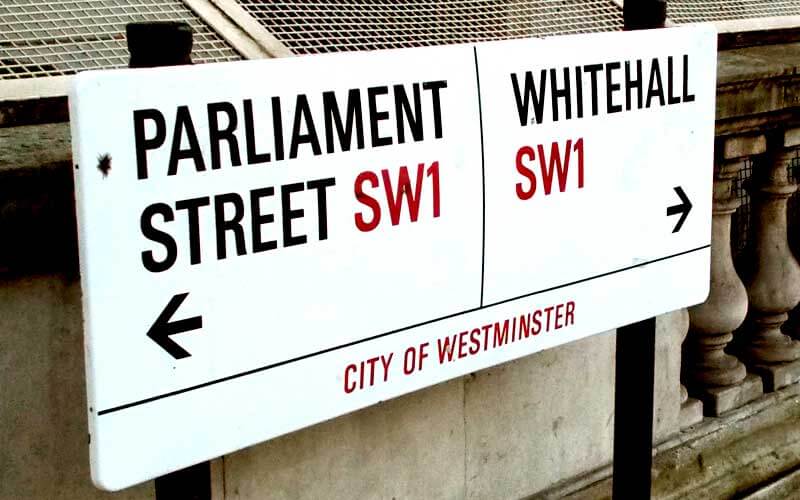A new government white paper has promised a “fundamentally different” approach to employment support, including “tackling ill health as the biggest driver of inactivity”, but it has left critical questions unanswered about Labour’s plans for disability benefits.
Disabled people and their organisations pointed yesterday (Wednesday) to “fundamental” and “very concerning” flaws in the white paper, with one disabled people’s organisation describing the proposals as “hand-me-down relics” of the last government’s “discredited” approach (see separate story).
The Get Britain Working white paper includes plans to “transform” jobcentres so they move away from a focus on “box ticking around monitoring benefit compliance” and instead become part of a national jobs and careers service, with a “stronger focus on skills and careers”.
It says: “Checking work-related requirements will move from the foreground to the background of the customer-work coach relationship.”
Jobcentre Plus is likely to be rebranded as part of the white paper’s proposals, some of which will cover England only, while others will apply to the UK, to England and Wales, or to England, Scotland and Wales.
The white paper also focuses on the need to fix the NHS by cutting waiting-lists “so people can get back to health and back to work” and sets out plans to work more closely with mayoral and local authorities to “design and deliver” employment support.
Work and pensions secretary Liz Kendall said in a written statement to parliament on Tuesday that there were now “a near record 2.8 million people out of work due to long-term sickness or disability” and claimed there was a “growing and unsustainable problem of people being out of work due to poor health”.
The white paper repeatedly mentions the need to tackle the rise in “economic inactivity” – the number of people who are not in work and not looking for work – particularly those with long-term sickness; young people not in education, employment or training; and women carers.
The phrase “economic inactivity” is mentioned 89 times in the white paper, with the government describing the need to reverse the increase as a “national priority”, with long-term sickness-related economic inactivity “at a near-record high”.
The government now plans to give new funding, powers and responsibilities to tackle economic inactivity to mayors and local areas, as well as Wales.
There is also the promise of a “youth guarantee” in England, so every young person aged 18 to 21 has access to “further learning, help to get a job or an apprenticeship”.
And there will be an independent review – running until next summer – into “the role of UK employers in promoting healthy and inclusive workplaces”, including what can be done to increase the recruitment and retention of disabled people.
But there are also huge gaps in the white paper.
Although the government says it will “establish a panel to consult disabled people as part of our wider efforts to ensure that the views and voices of disabled people are put at the heart of the design and delivery of our reforms”, this is only happening now the white paper proposals have been published.
There is also no mention of the significant and continuing safeguarding concerns linked to the Department for Work and Pensions, both through its benefits assessment and conditionality regimes and its universal credit working-age benefits system.
There is little or no information about the government’s plans for imposing conditions and sanctions on those receiving out-of-work benefits.
The white paper says the government wants “to ensure that more people are engaged with support that can help them to work”, but there is no discussion of what kind of pressure will be imposed on claimants to ensure this engagement takes place, although it does say ministers want a new system that “empowers people to feel able to engage with employment support and try work without fear of losing benefit”.
There is also no mention of a possible “duty to engage” with such support for all those who are economically inactive, an idea floated by former New Labour health secretary Alan Milburn in a report backed by Kendall in July.
Kendall promises only a green paper and public consultation next spring on the government’s plans for reform of the disability benefits system, which will include details on whether it plans to replace or reform the work capability assessment (WCA), and is likely to include further details on conditionality.
Because these proposals will be laid out in a green paper, which tend to set out proposals “which are still at a formative stage”, this suggests that any changes are still years away.
There is also no mention in this week’s white paper of where the government plans to find the £2.8 billion in savings that the last government promised to find by tightening the WCA.
This would have seen 424,000 disabled people lose their entitlement to extra support of up to £4,900 a year by 2028-29.
A note from the editor:
Please consider making a voluntary financial contribution to support the work of DNS and allow it to continue producing independent, carefully-researched news stories that focus on the lives and rights of disabled people and their user-led organisations.
Please do not contribute if you cannot afford to do so, and please note that DNS is not a charity. It is run and owned by disabled journalist John Pring and has been from its launch in April 2009.
Thank you for anything you can do to support the work of DNS…

 ‘Disastrous’ cuts bill that leaves legacy of distrust and distress ‘must be dropped’
‘Disastrous’ cuts bill that leaves legacy of distrust and distress ‘must be dropped’ Four disabled Labour MPs stand up to government over cuts to disability benefits
Four disabled Labour MPs stand up to government over cuts to disability benefits Silence from MP sister of Rachel Reeves over suicide linked to PIP flaws, just as government was seeking cuts
Silence from MP sister of Rachel Reeves over suicide linked to PIP flaws, just as government was seeking cuts